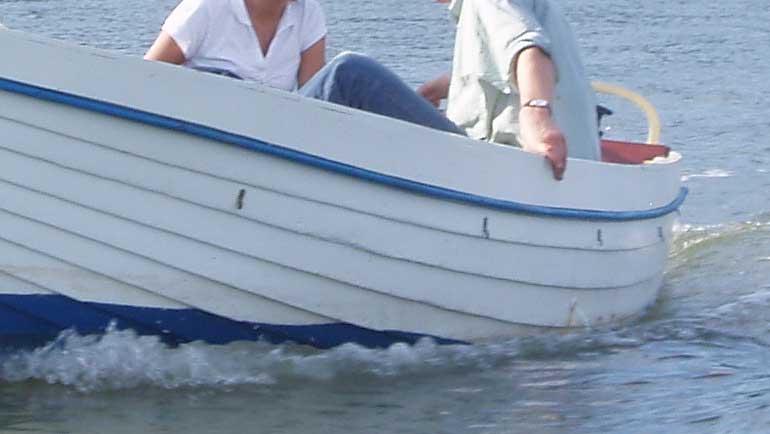| Author |
Message |
    
Ben Tuppen
Member
Username: bentuppen
Post Number: 24
Registered: 07-2005
| | Posted on Wednesday, September 26, 2007 - 01:31 pm: | 




|
Hello,
A quick question: how much water should be running through my R3M? I get a steady stream of water out of the side of our boat but I remember an old P5 used to have quite a lot more pressure? Looking at this picture of her tanking along at highish revs, do you think I need to clean up the water pump?

Last year with a rusty fuel tank and dodgy magneto we didn't get reliable enough running to have her going more than 30 mins at a time but I'd like to check before I get her out again next year (in anticipation of longer journeys!).
Thanks very much
Ben |
    
Hugo Derrick
Member
Username: hello
Post Number: 5
Registered: 08-2006
| | Posted on Wednesday, September 26, 2007 - 02:36 pm: | 




|
Ben -
With the engine running @ full speed (1500 RPM) the R3 pump will deliver ~ 10 gallons per hour. My installation has the water injected just after the exhaust swan-neck, so it's difficult to compare with your picture; having said that, your pic looks about right.
If you have a brightish ring around each valve chamfer (& they're not excessively worn!), and sound pump packing, there's little to go wrong with the pump (assuming the seacock is positioned such that it runs in 'solid' water).
Helpful?
Hoping so,
H. |
    
John Archibald
Member
Username: john_archibald
Post Number: 23
Registered: 08-2006

| | Posted on Wednesday, September 26, 2007 - 02:40 pm: | 




|
I should think that the temperature of the discharged water would be the thing to watch.
Archibald
. |
    
Ben Tuppen
Member
Username: bentuppen
Post Number: 25
Registered: 07-2005
| | Posted on Thursday, September 27, 2007 - 08:52 am: | 




|
Thanks very much both for the tips. I'll give it a run and see how much is going through, and certainly on a long trip (we will get there!) I'll keep sticking my hand over the side to see how the temp is. |
    
miro forest
Senior Member
Username: miro
Post Number: 294
Registered: 11-2001

| | Posted on Thursday, September 27, 2007 - 03:11 pm: | 




|
I usually find that if the cylinder is warm or nearly hot, but I can still touch without an OUCH , then it is running OK.
Most of my engines probably run too cool.
Miro |


